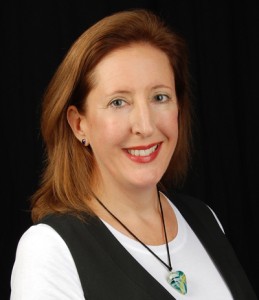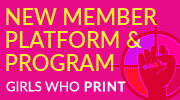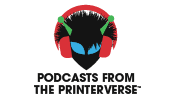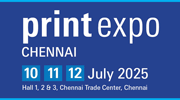If you’re a commercial printer, let me first thank you for not skipping this article. I understand that the knee-jerk response to my question for a lot of you is an emphatic “NEVER!” I’m just here to say that never is a very long time.
For all the PR coverage that digital printing growth rates get, traditional printing still makes up 95 percent of total printed pages. But, if you’re in one of the segments where digital growth is stealing directly from traditional methods – never might be sneaking up on you. Between 2012 and 2017, InfoTrends projects major growth in digital pages in some key areas that impact commercial printers:
- Books 40+ billion
- Brochures 12+ billion
- Catalogs 11+ billion
- Magazines 9.9 billion
- Direct Mail 9.8+ billion
Inkjet is a big driver in the growth of digital pages. In fact, even though inkjet has not yet been widely adopted by commercial printers, I.T. Strategies estimates that roughly 30 percent of the pages printed on inkjet today replaced offset pages.
3 Reasons to Learn About Inkjet
There are three factors which, taken together, are putting a lot of pressure on commercial printers.
- Inkjet quality improvements
- Expanding paper options
- Print-Buying trends
Manufacturers have introduced numerous enhancements on the press, in press-related software and in premium inks and other inkjet fluids. When combined with new inkjet papers, including inkjet coated stocks, the inkjet color gamut has expanded substantially. Pete Basiliere Research Vice President – Imaging and Print Services at Gartner Inc. says: “There is no longer any question about the quality of inkjet printing. The roll-fed inkjet presses produce output that will meet most printing companies’ clients’ requirements. “
While purists may still say that offset quality can’t be beat – if your clients’ needs for quality are “offset” by other demands such as personalization and fast turn times, the quality debate becomes moot. Even digital toner devices can’t keep up. “As more and more customers of commercial printers start adopting variable data programs the printers are discovering that their current digital printers are too slow and too expensive to operate on a per piece basis,” says Duncan Newton, Managing Director of Global BookBindery, LLC. “This is exactly what the new production class inkjet presses were designed to do.”
You may not even realize that your clients are diverting business to a competitor – but order sizes are getting smaller and smaller as more of the overall work is divided into customized jobs unsuitable for traditional presses. “The new production inkjets were created for doing the work that offset presses struggle to do profitably. A commercial printer will have to adapt to this fact or face competition from another company has made that investment,” says Newton.
Where to Learn About Inkjet
If you think that it’s time to learn about inkjet, either to invest, or just to better understand what the competition is doing, there are a couple of great opportunities coming up. The first is Xploration 14 March 25 – 27 in Orlando where I’ll be presenting “Think Ink” a discussion of the impact of inkjet on print service providers along with Mary Schilling. The second is the Inkjet Summit in Ponte Vedra Florida April 7-9 which is running a special track for commercial printers interested in inkjet (in addition to tracks for transaction printing, direct mail and books.) Please also feel free to contact me on LinkedIn and I’ll help if I can.
Elizabeth Gooding is an independent designer, consultant, writer and analyst who has been spending an inordinate amount of her time recently evaluating inkjet products because they are pretty amazing. She is the president of Gooding Communications Group (an Insight Forums company) although she prefers the title “Curious Consultant and Professional Problem Solver.” Elizabeth helps major brands and the print providers who serve them to provide business communications more effectively and efficiently. She can be reached at 800-886-2196 assuming that snow does not bury the entire Commonwealth of Massachusetts.
Connect with Elizabeth on Twitter @Egooding













